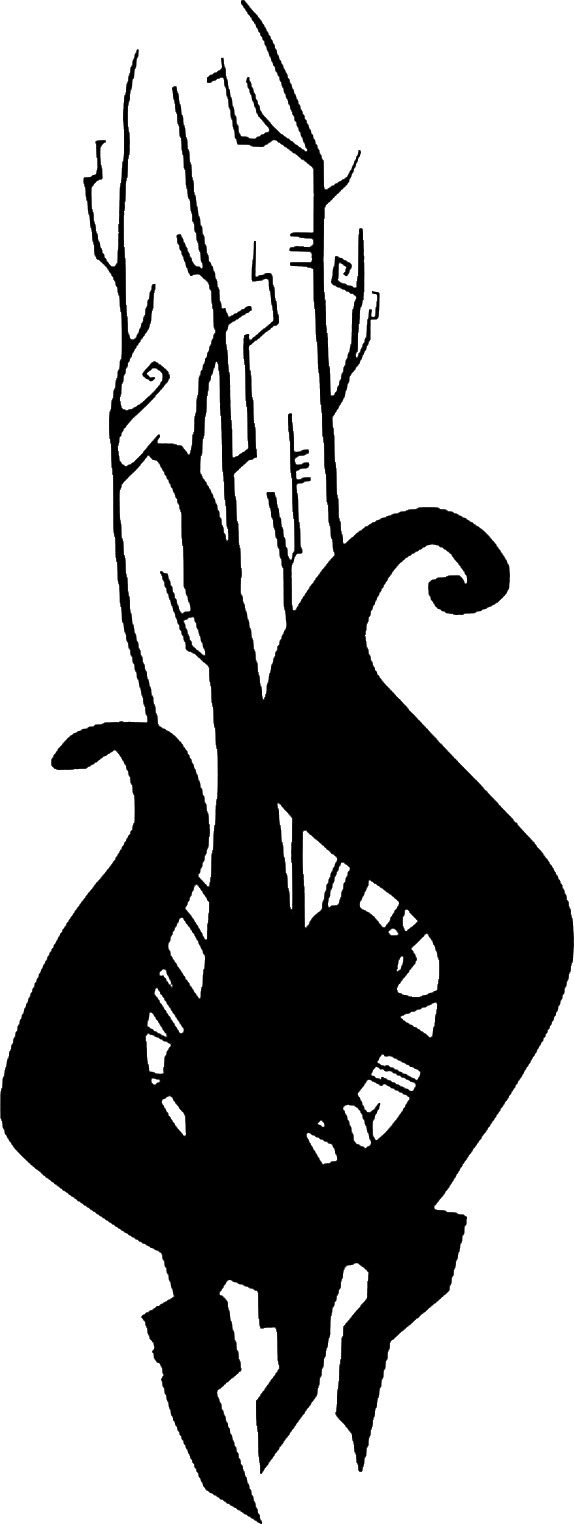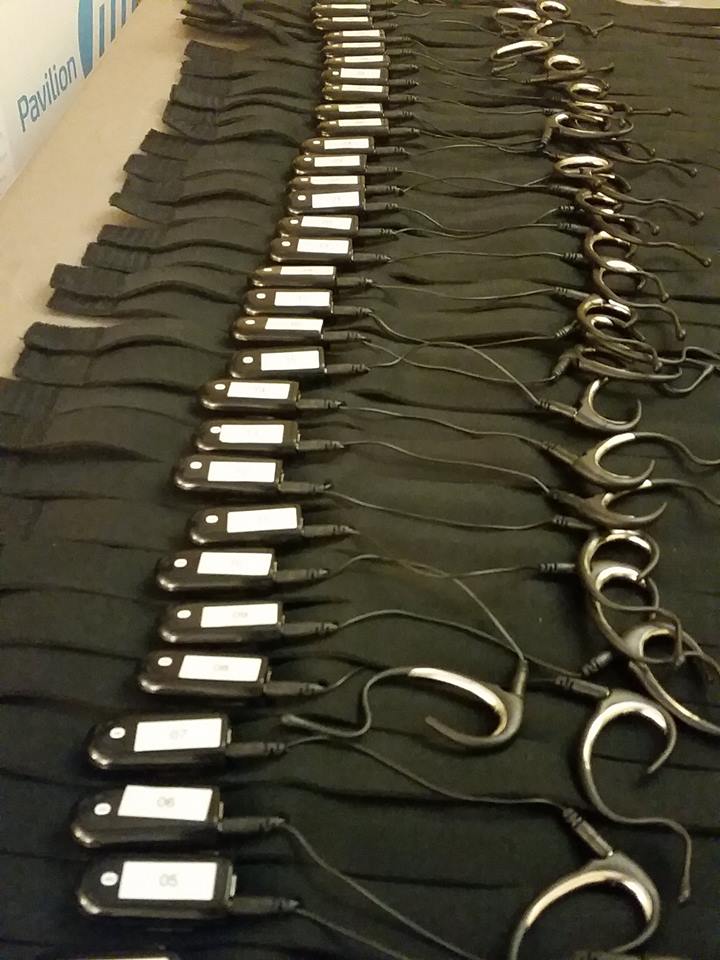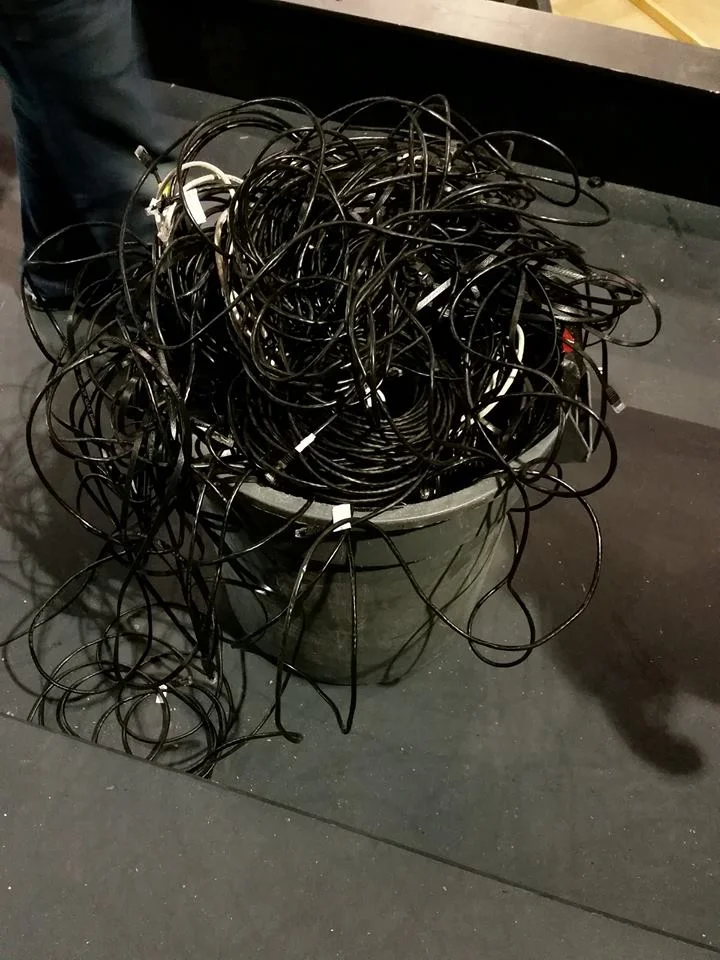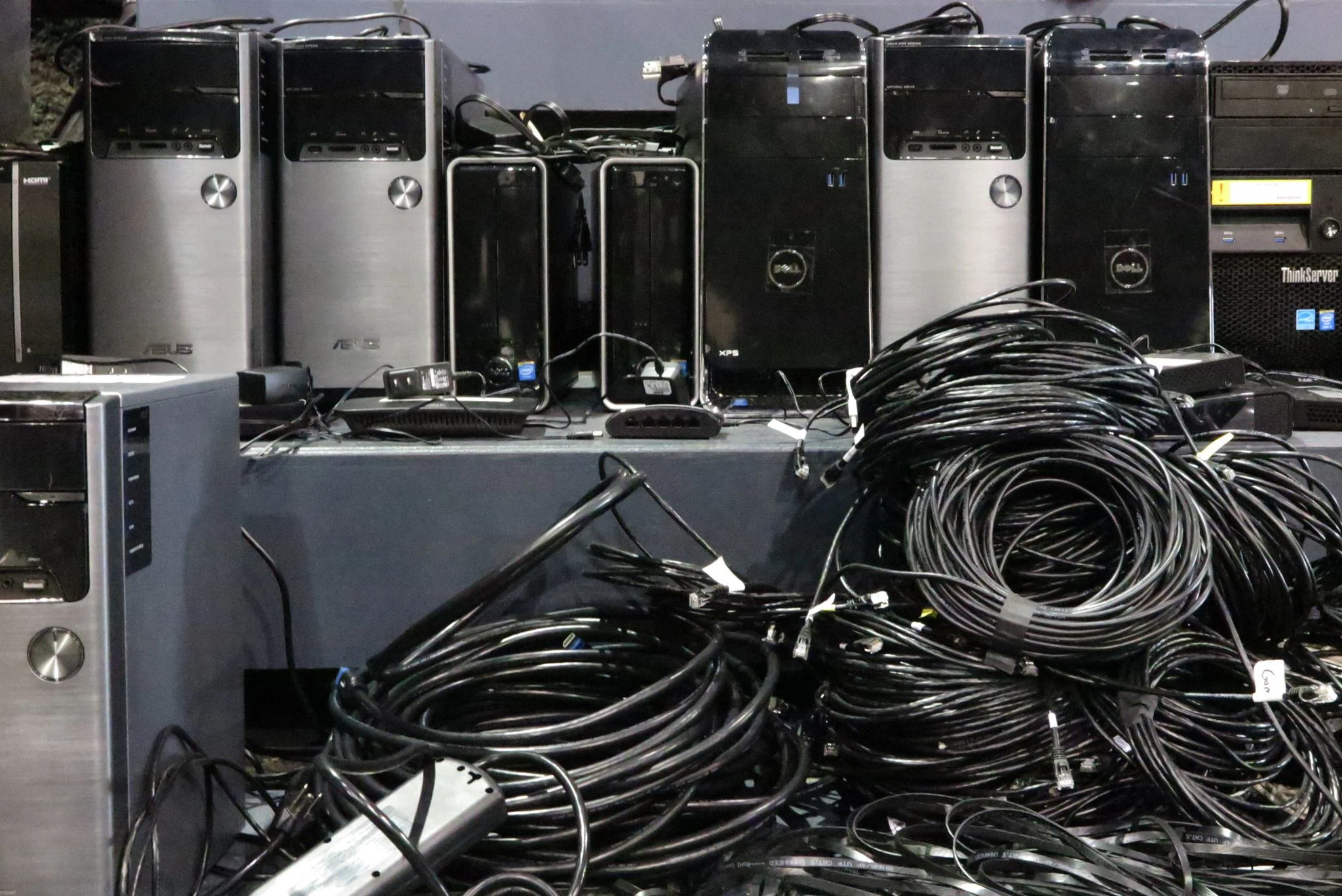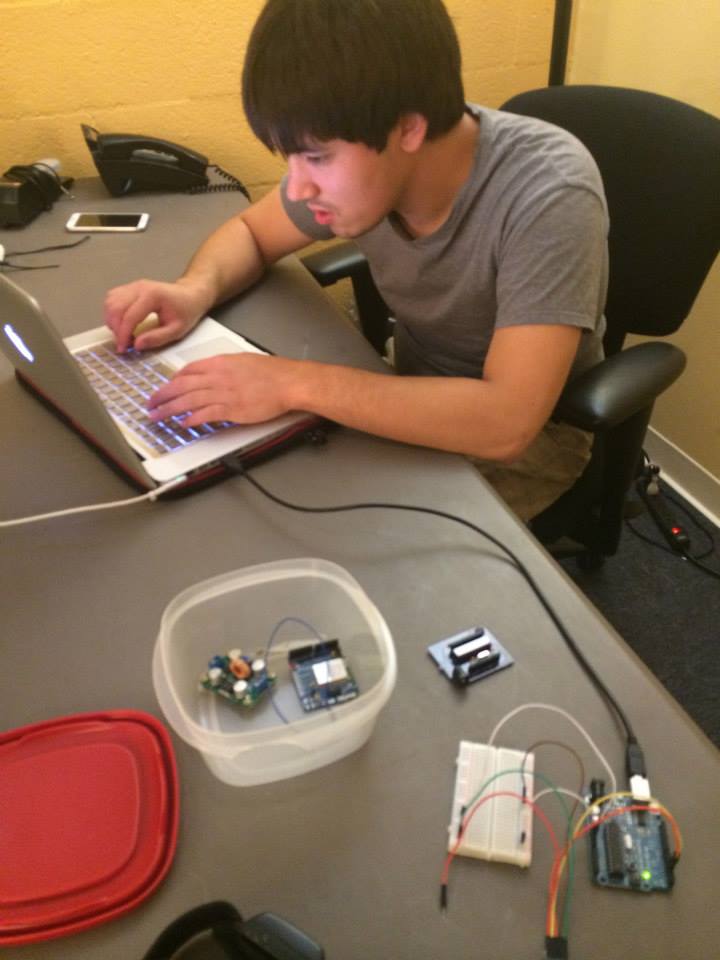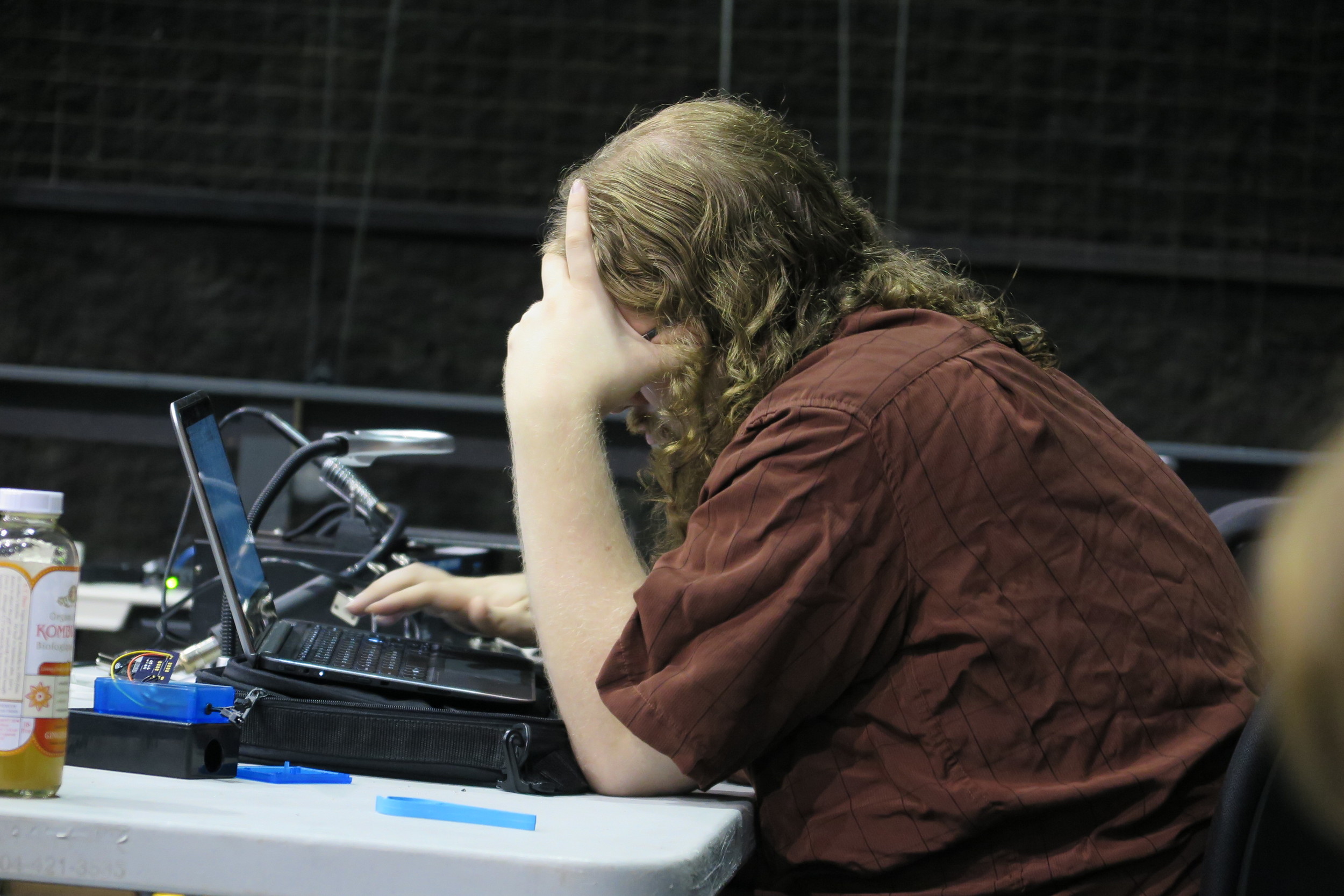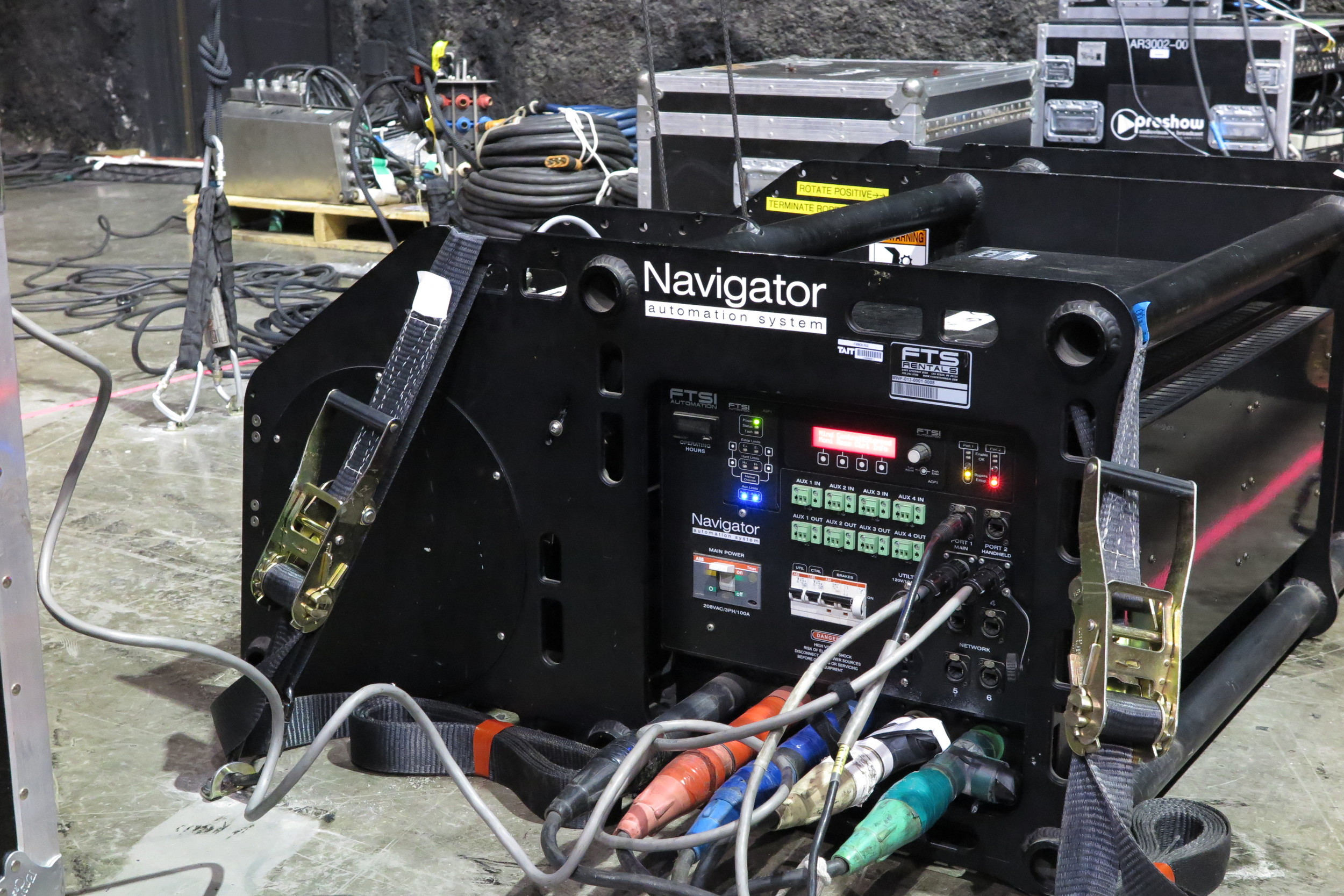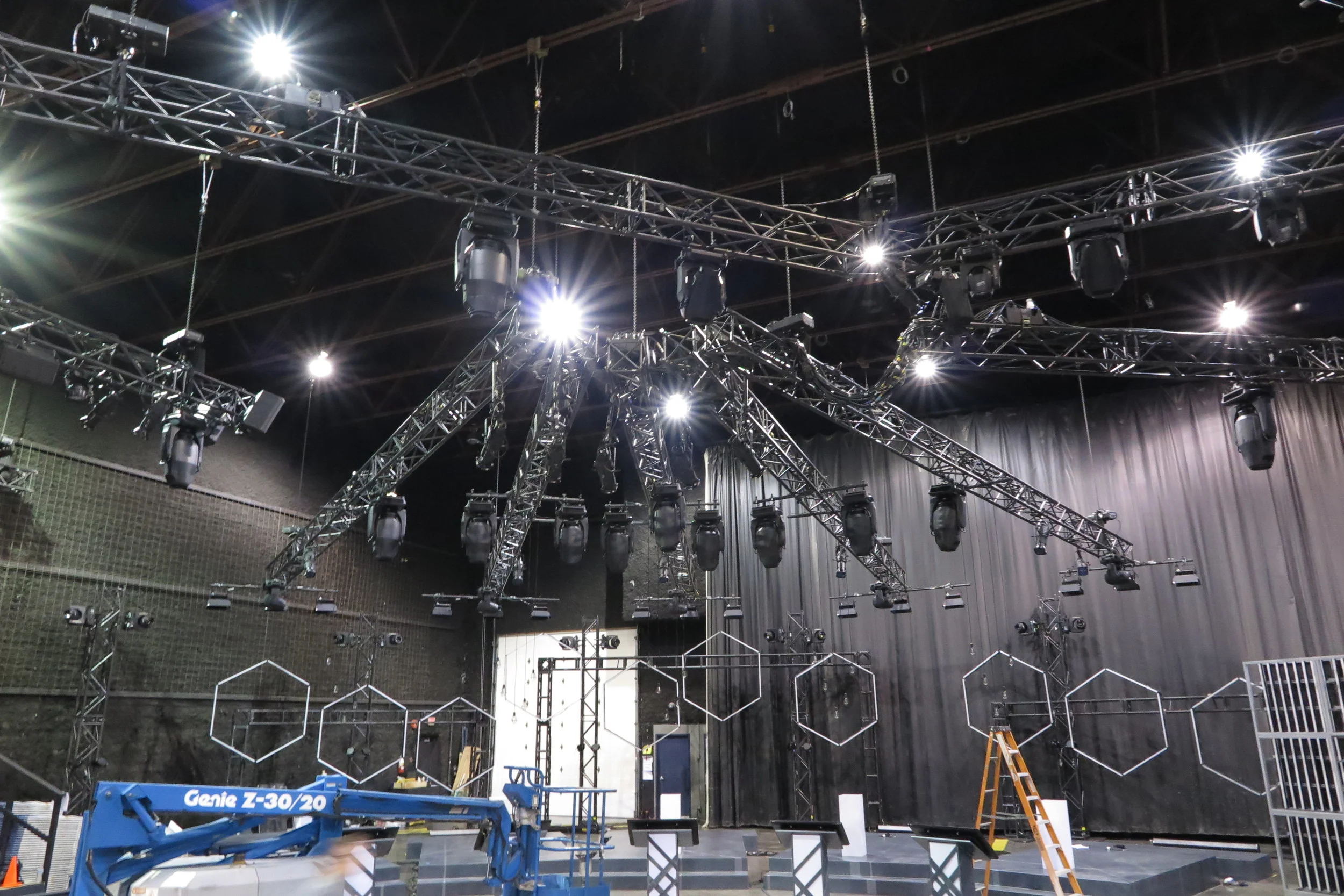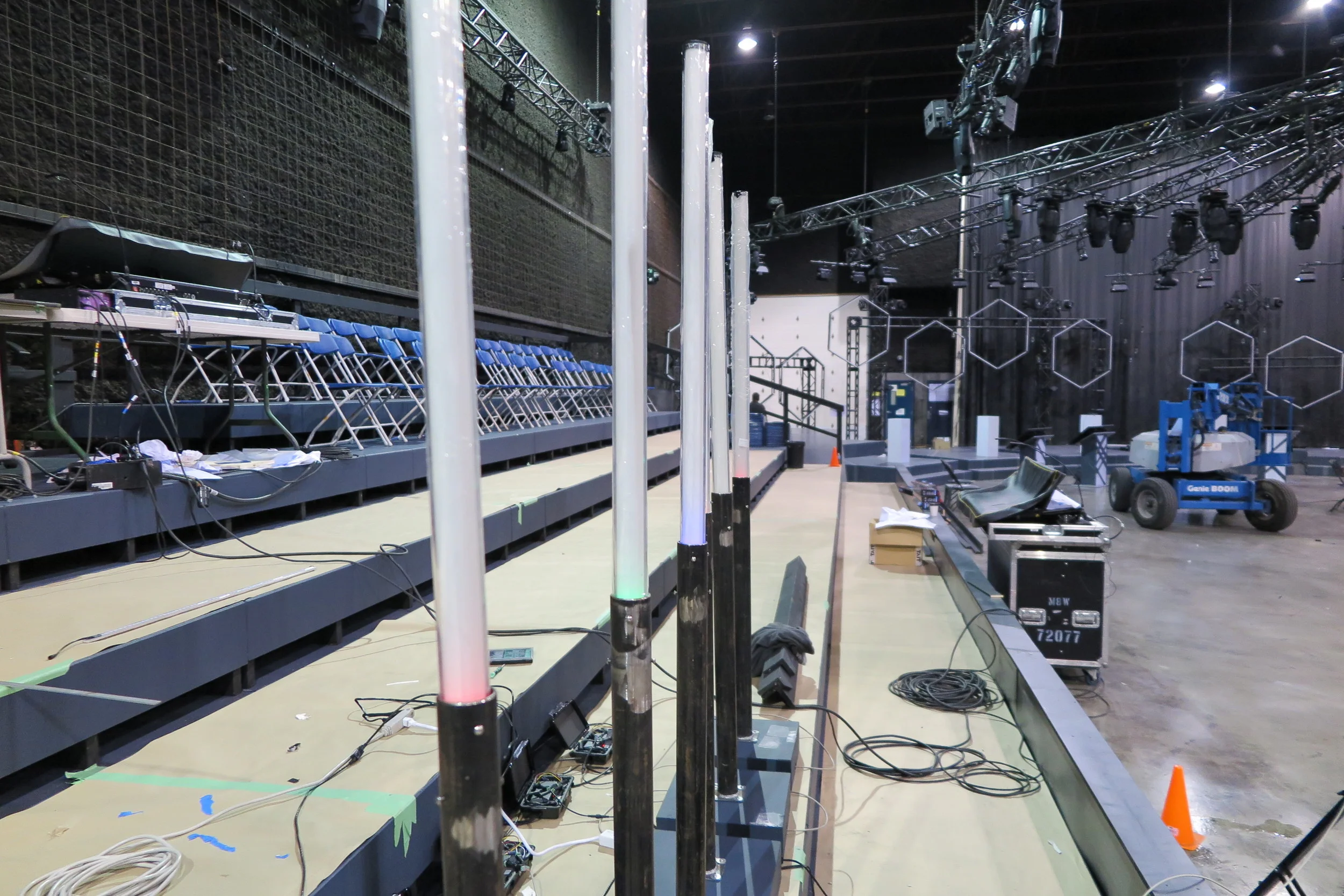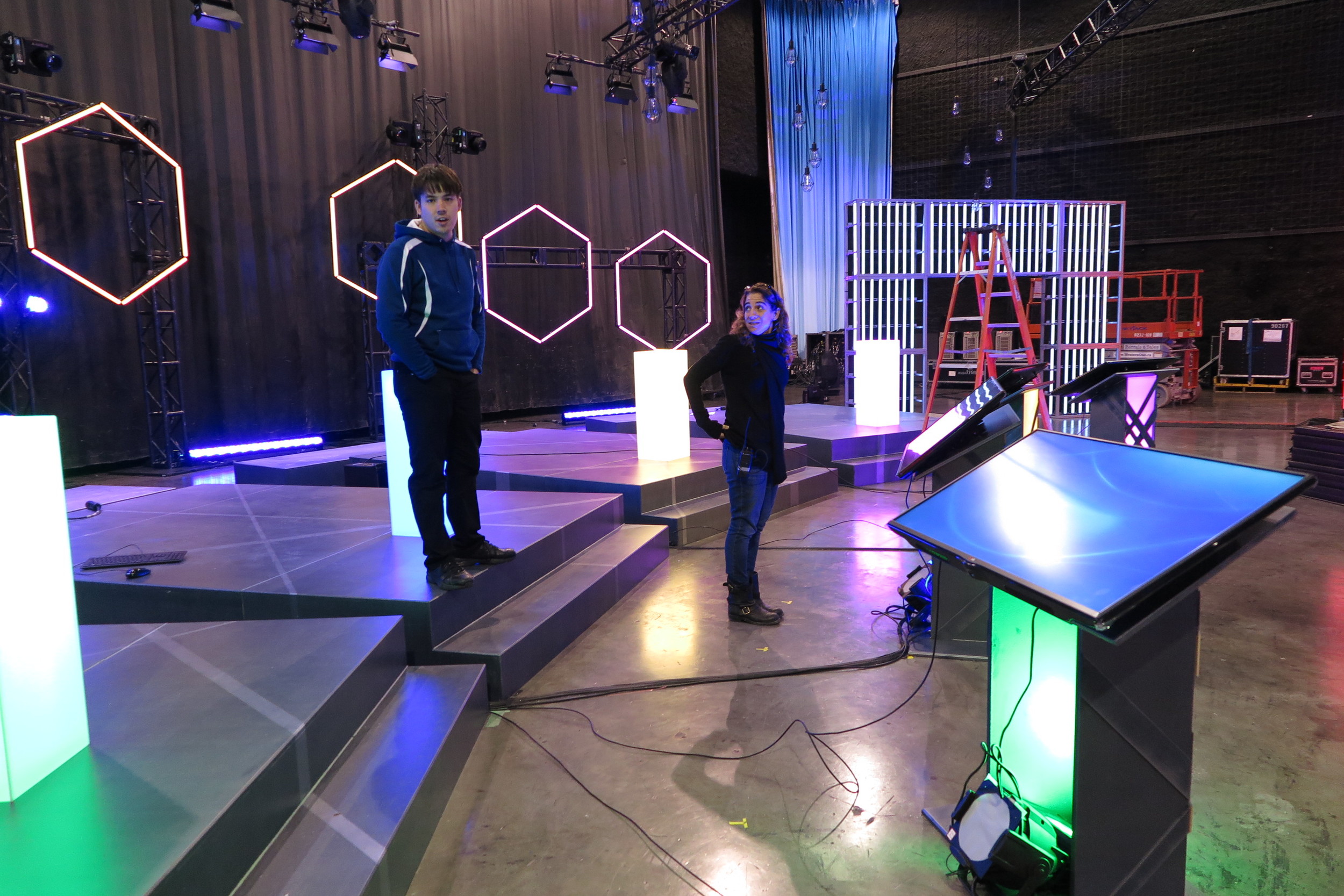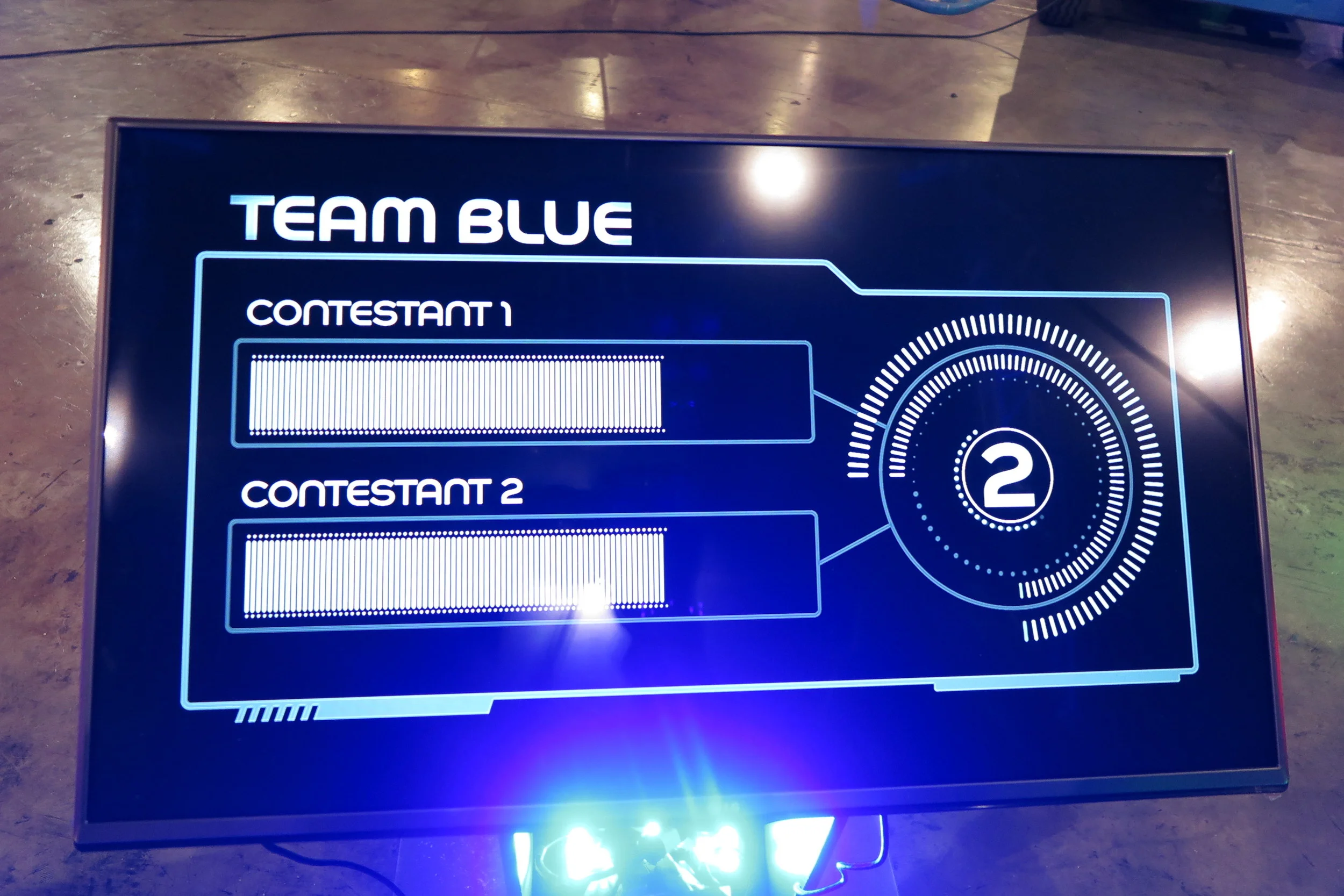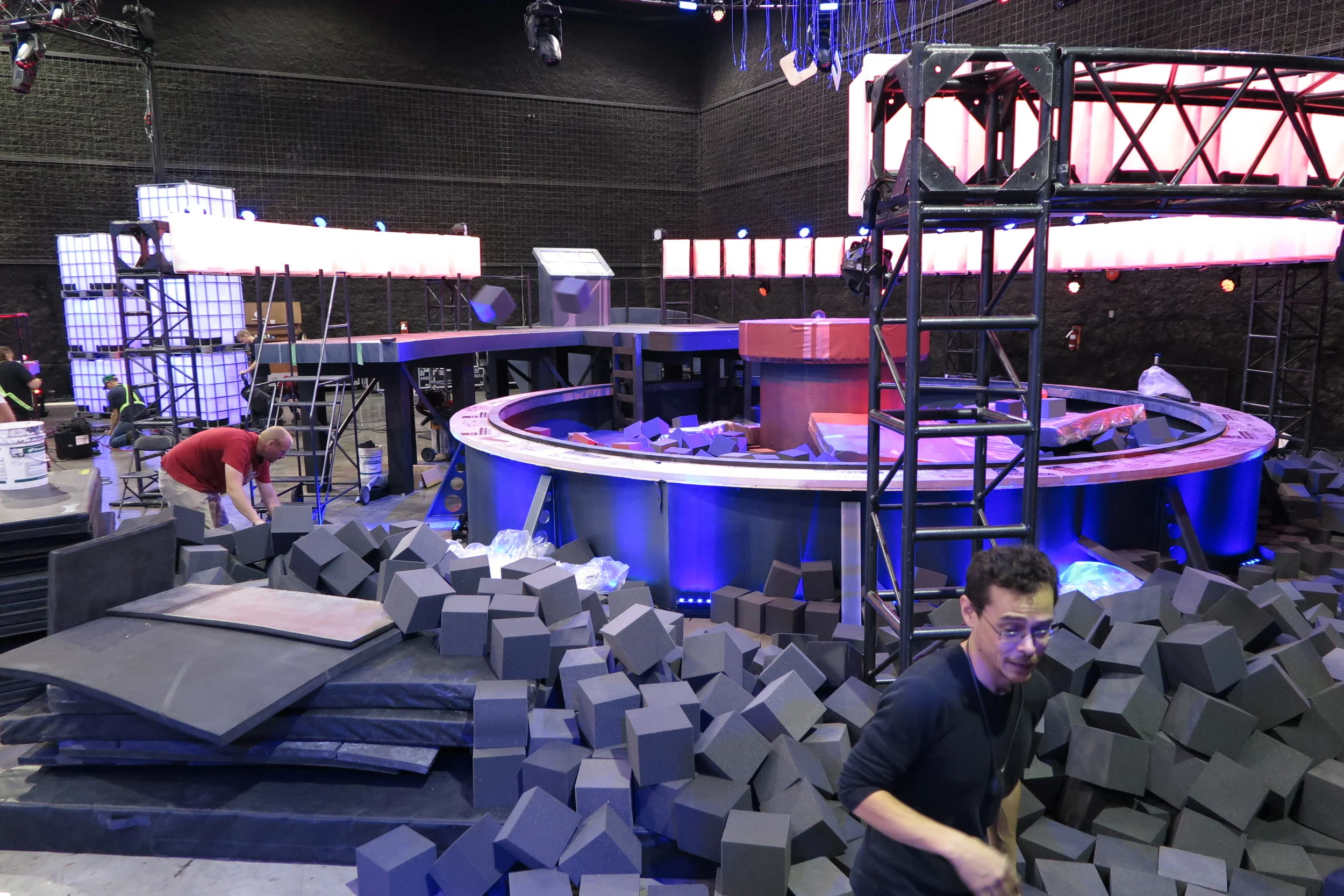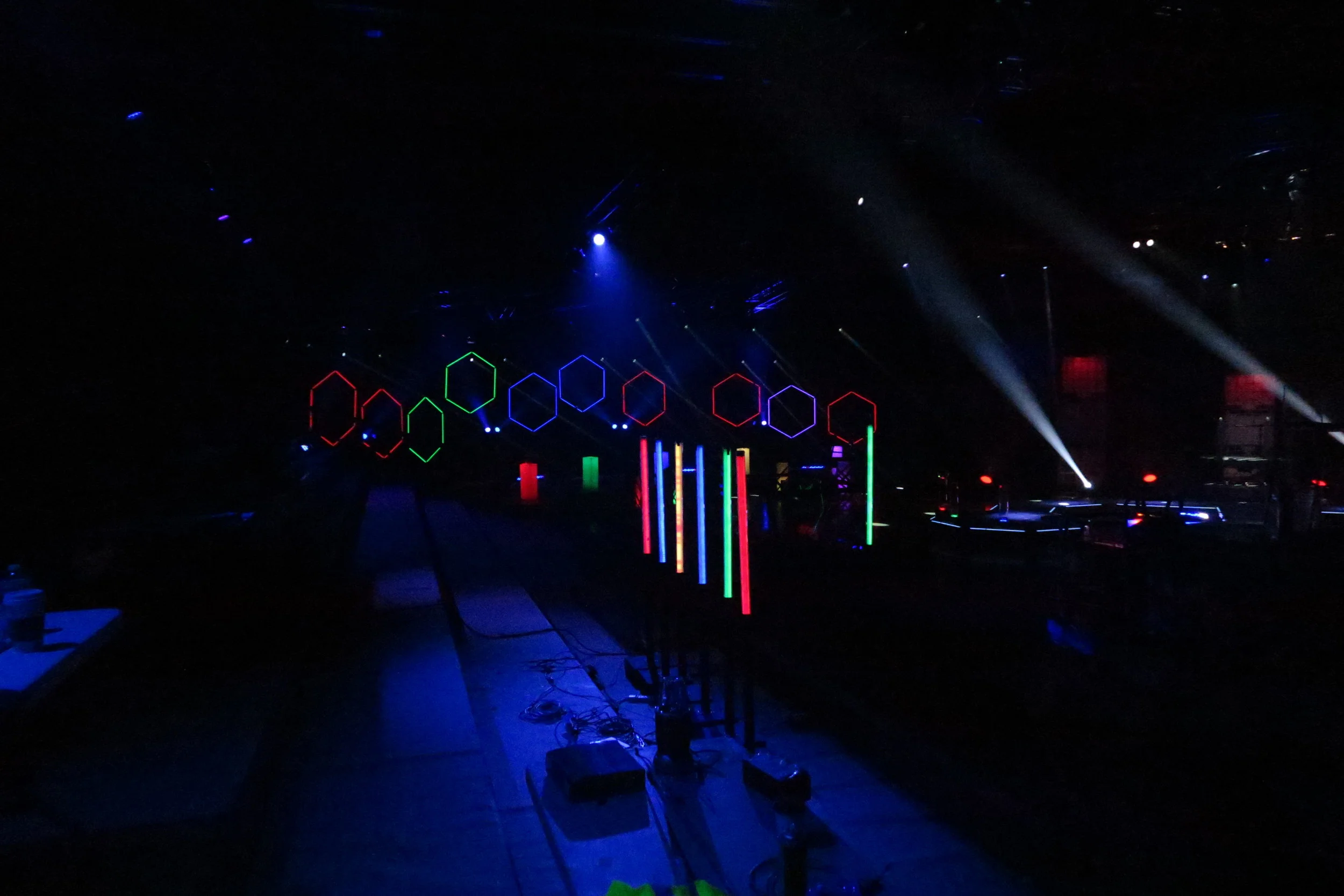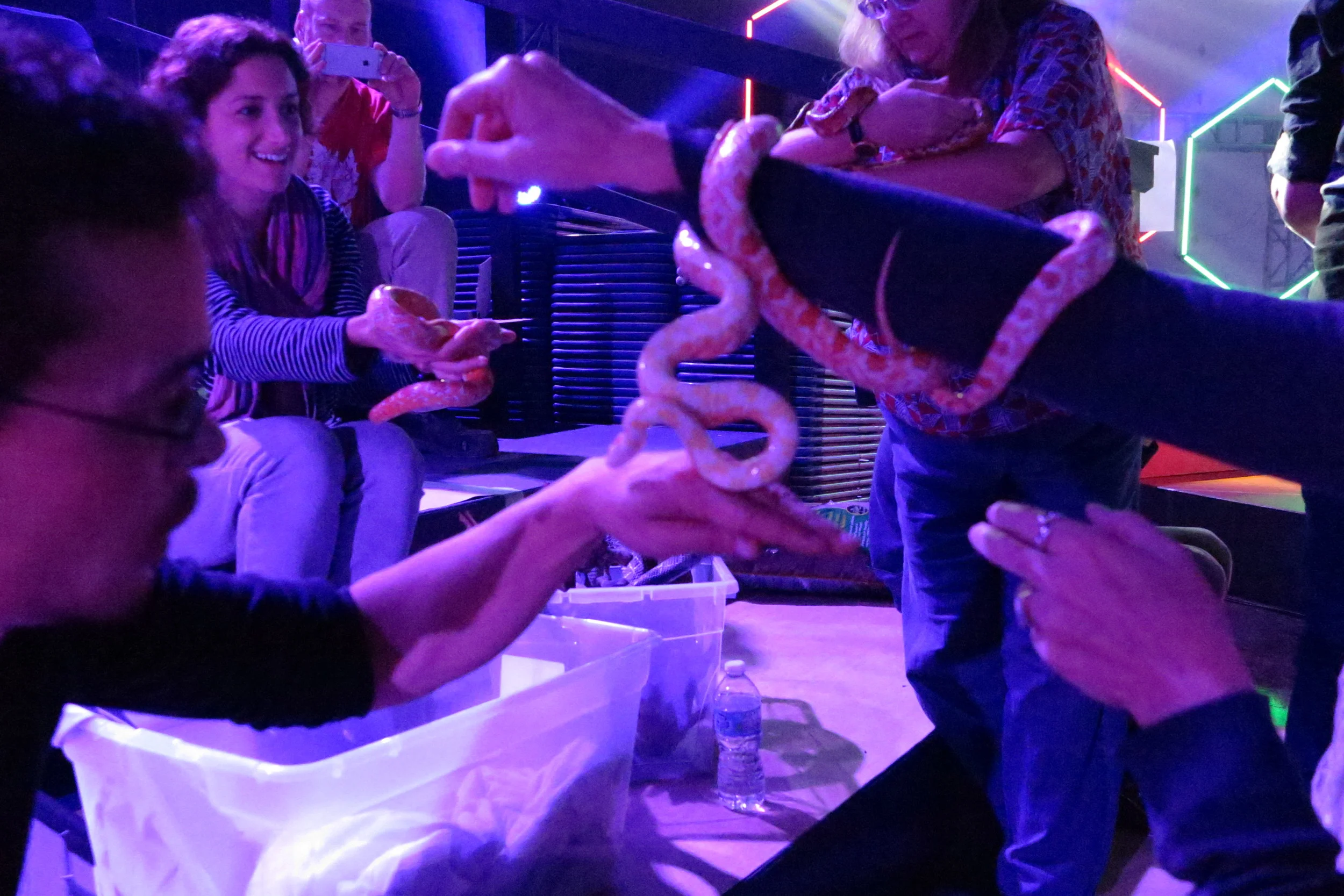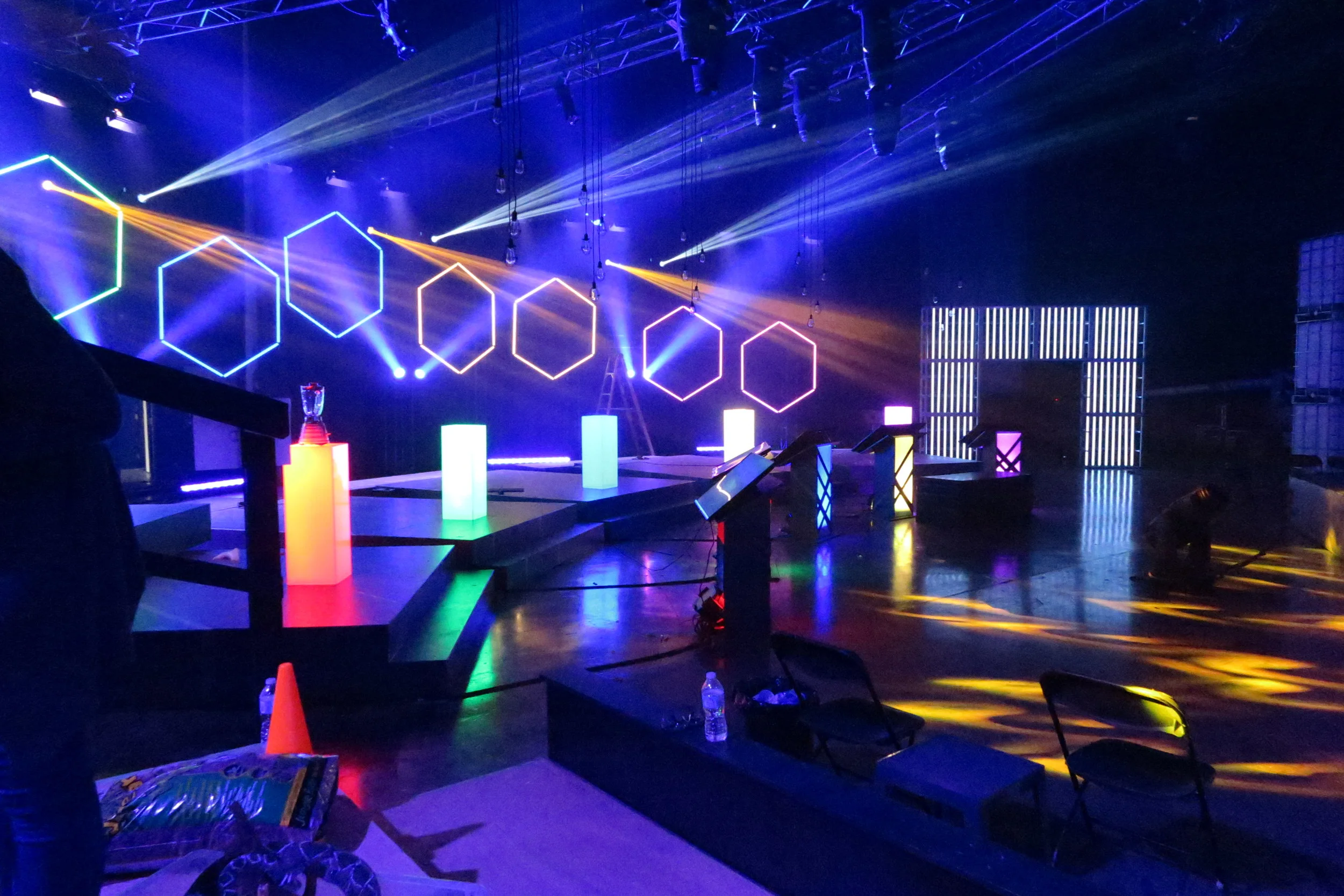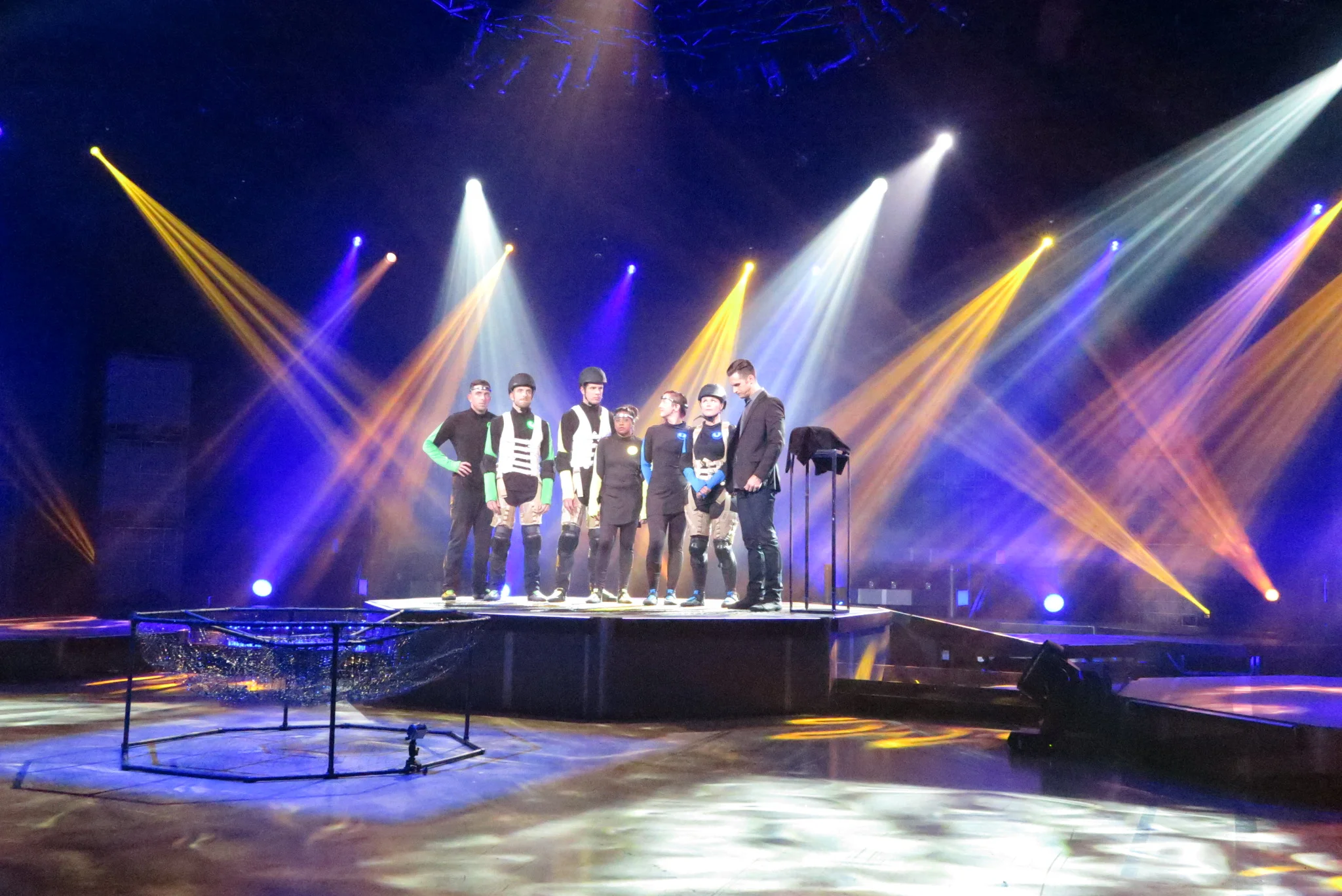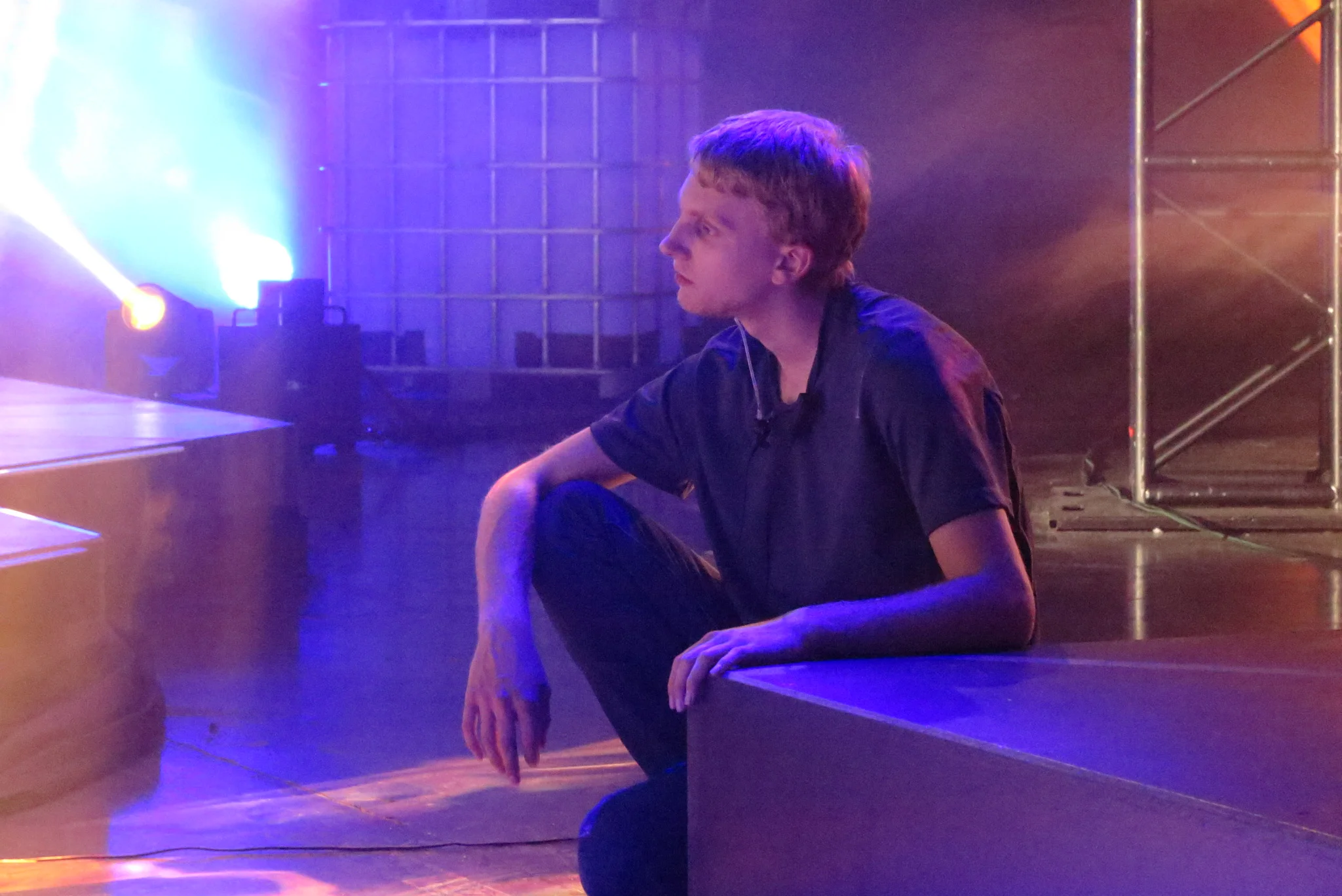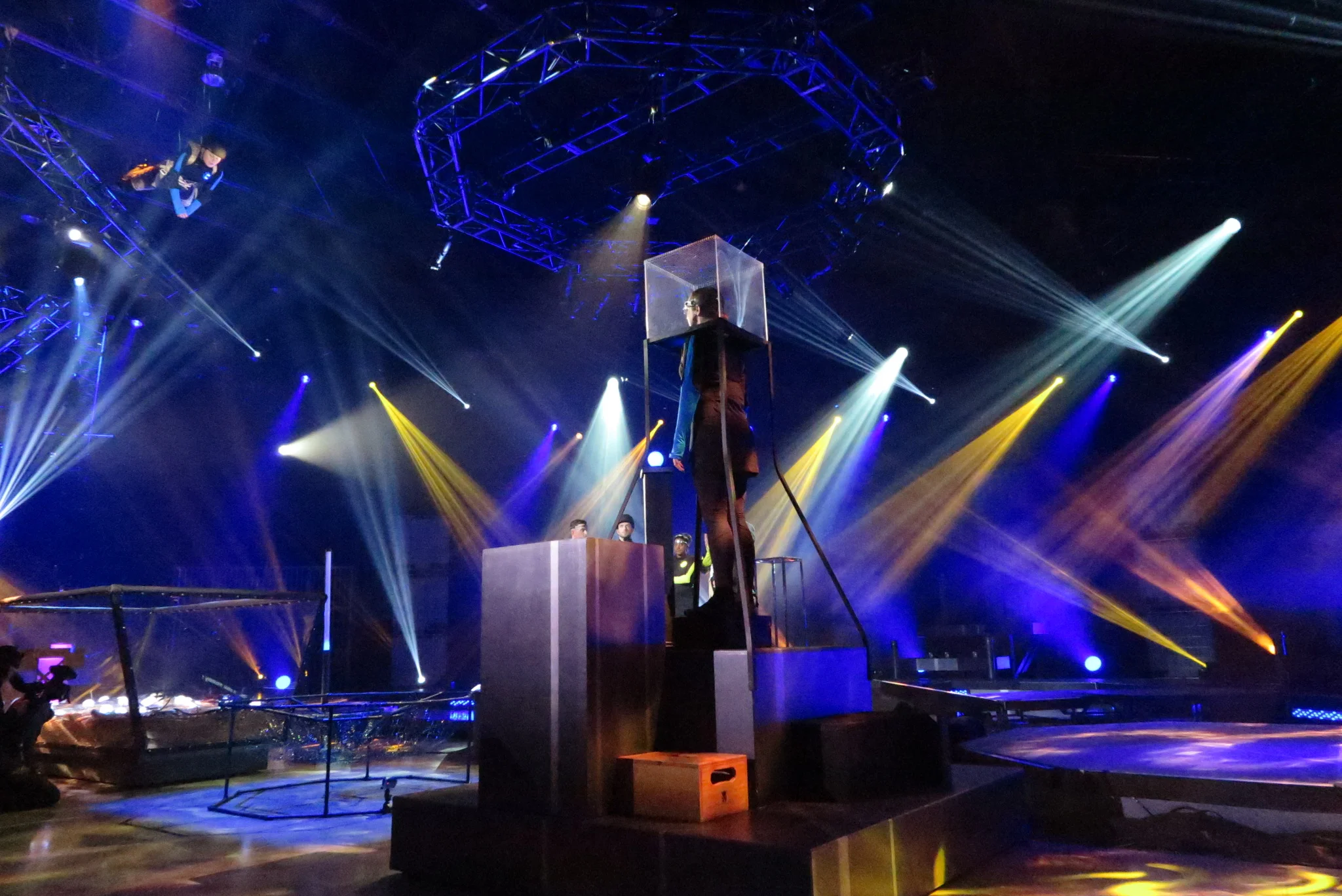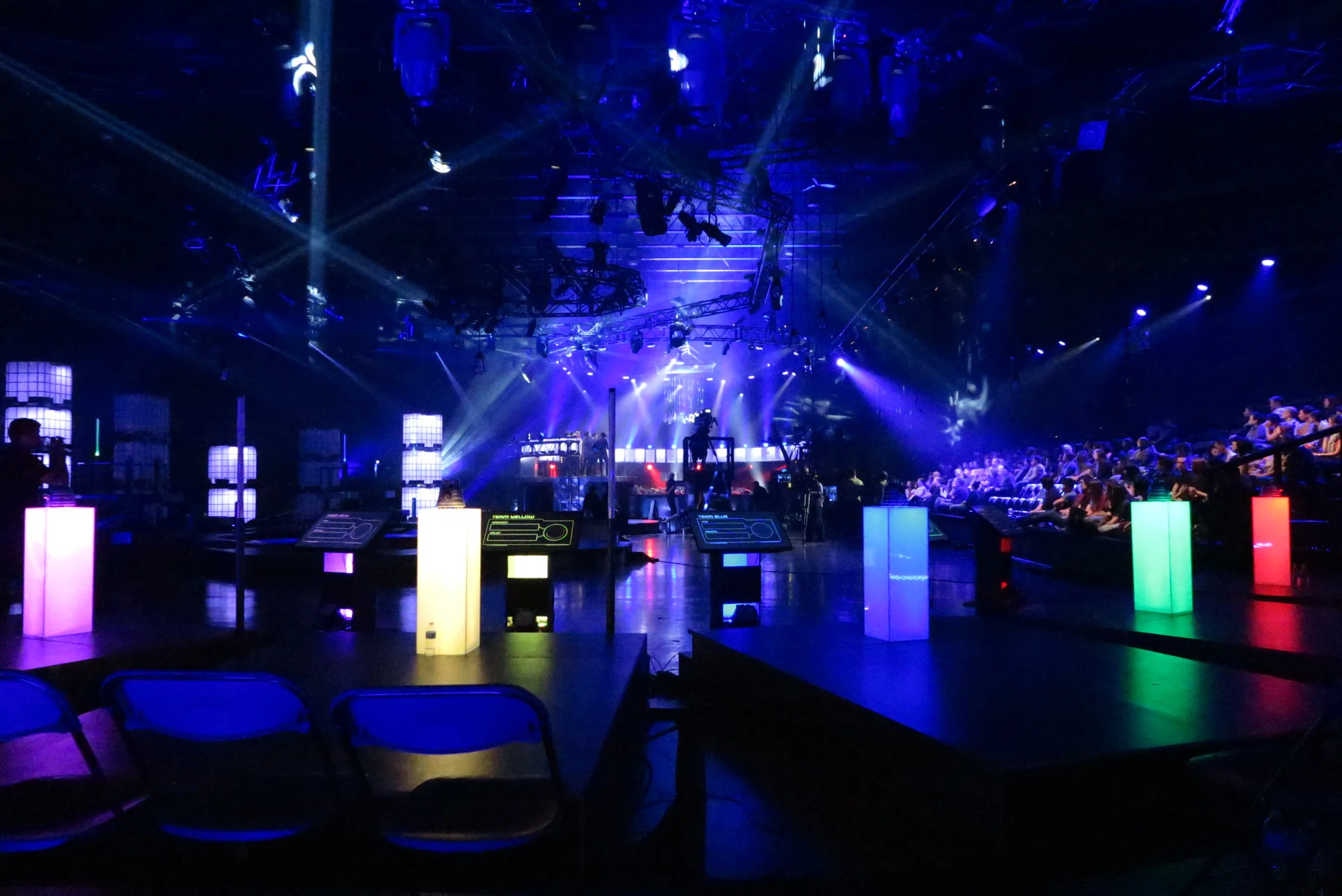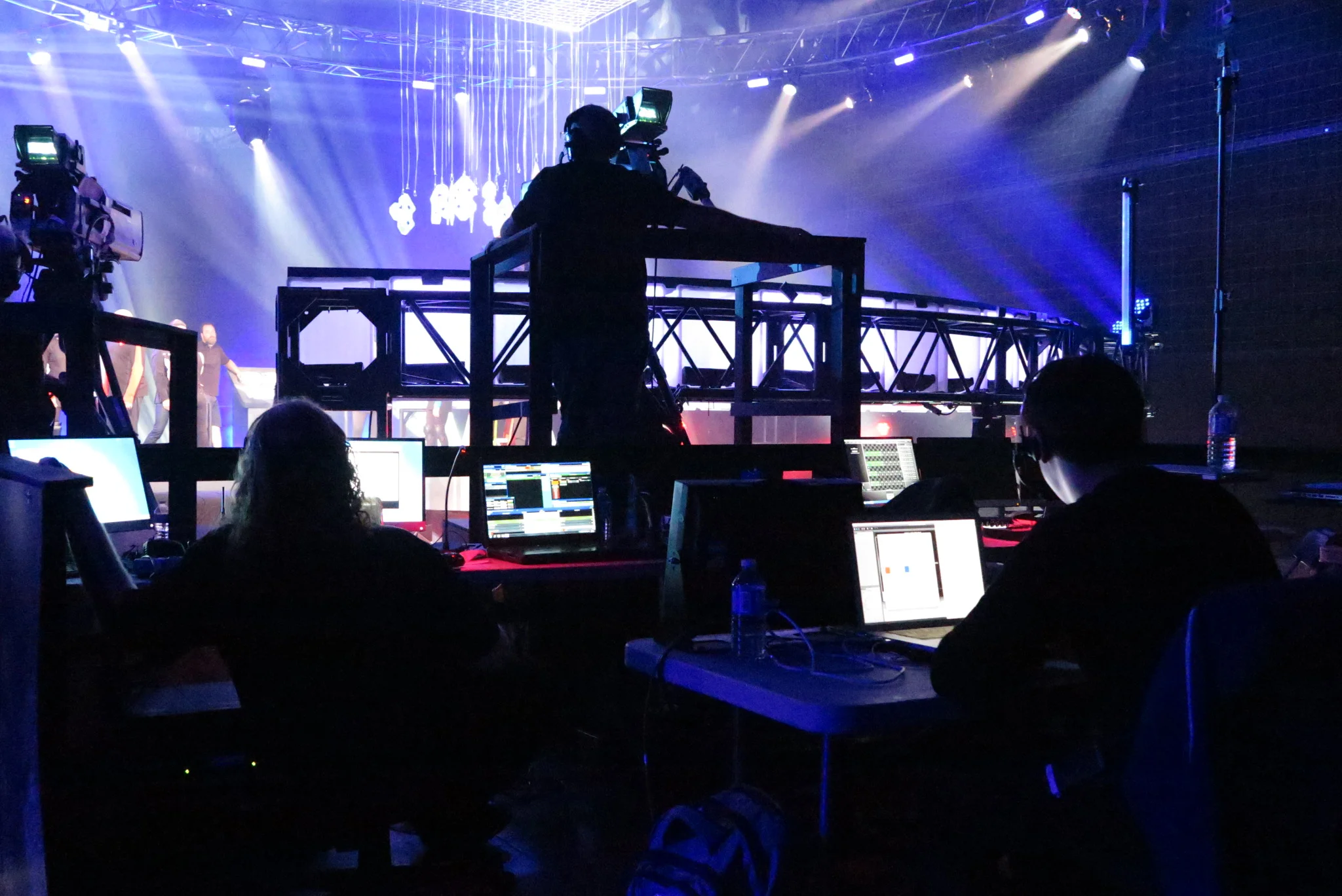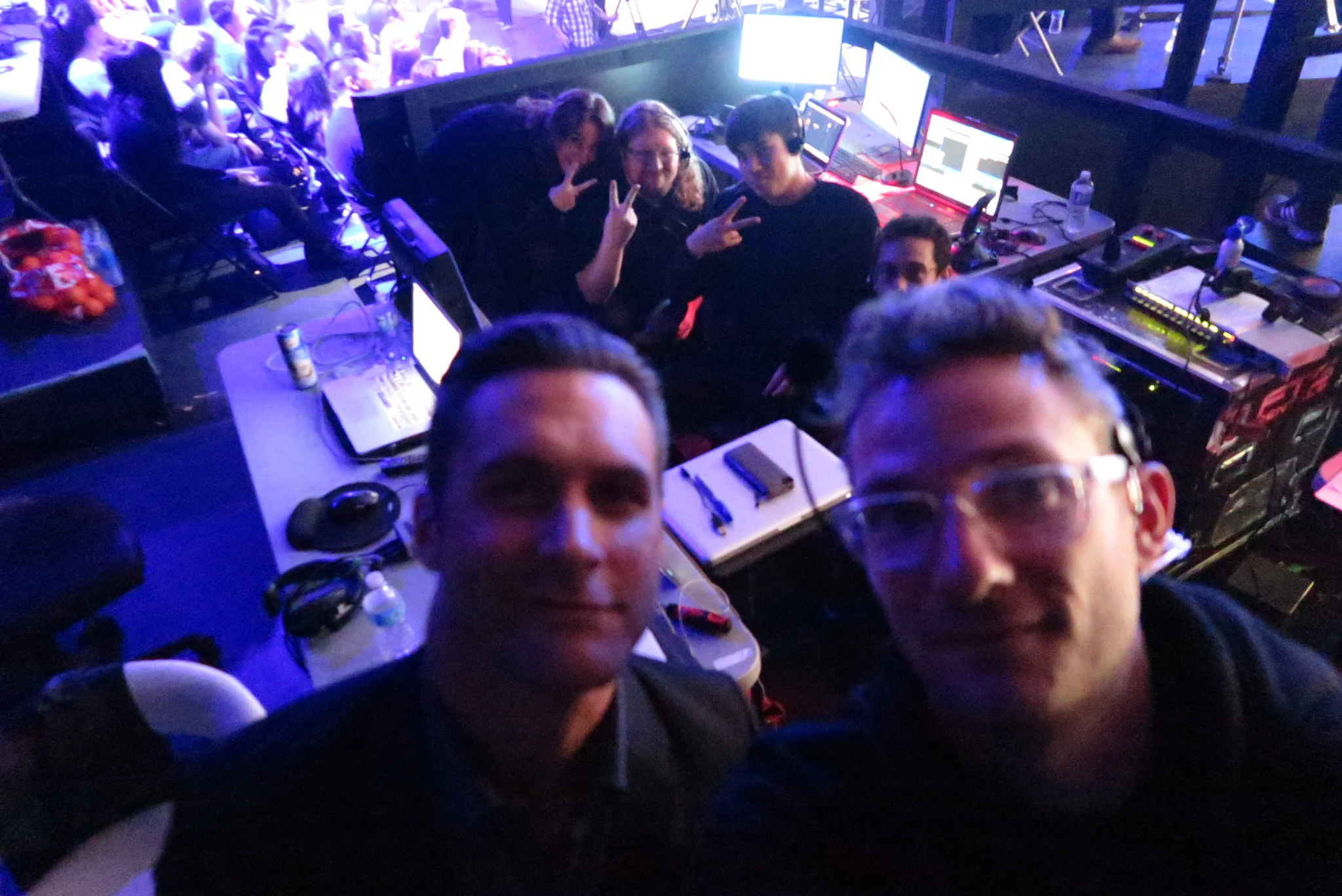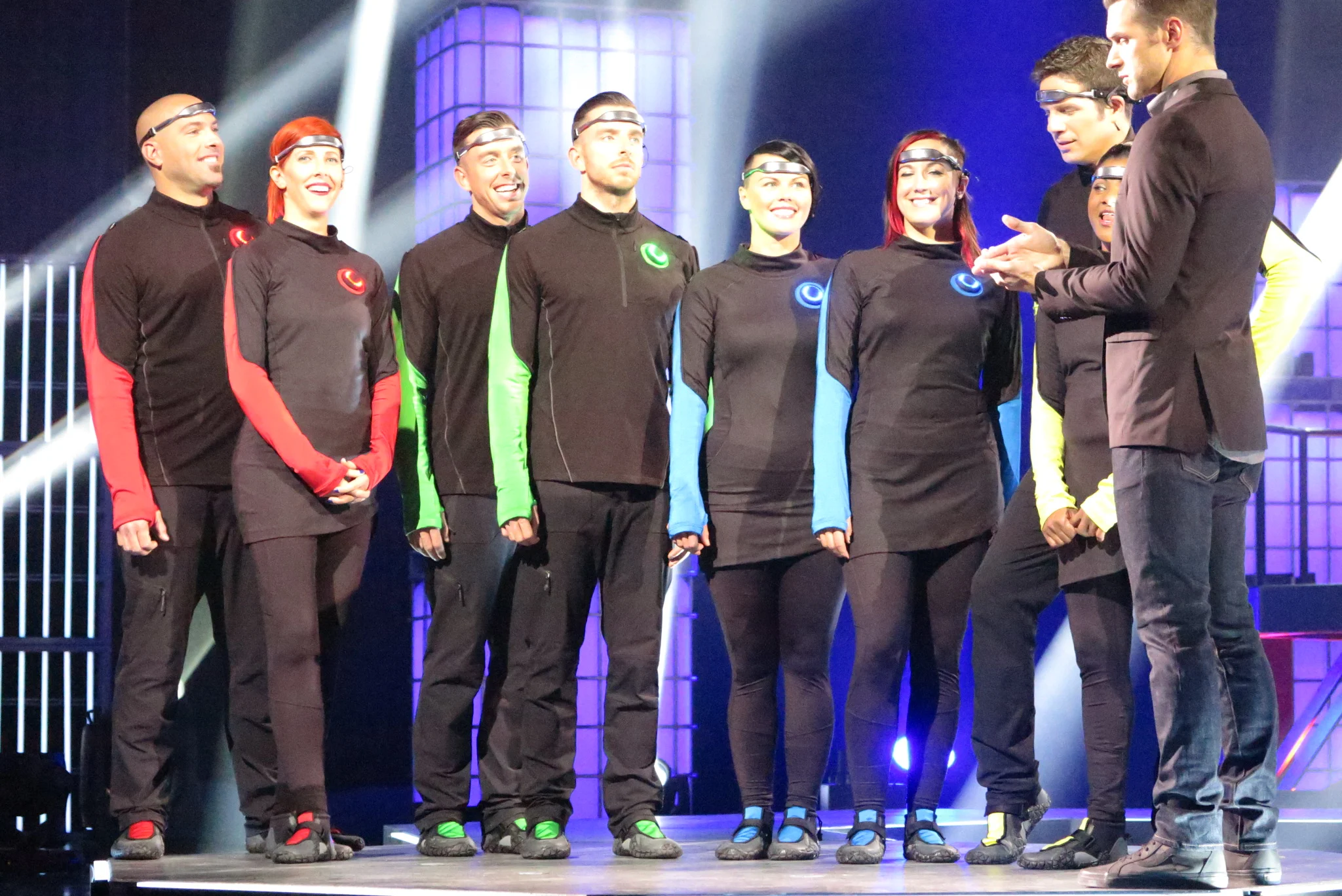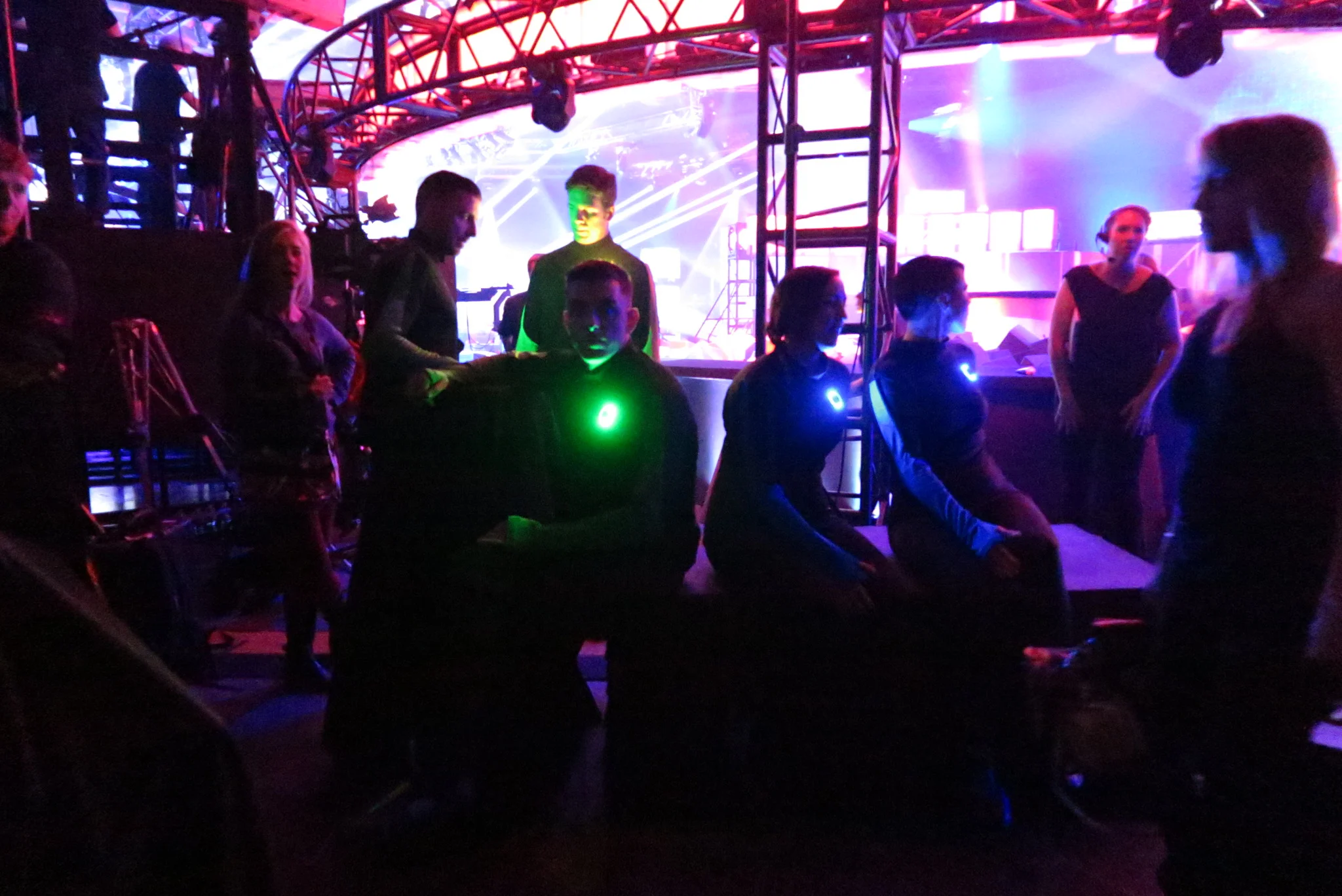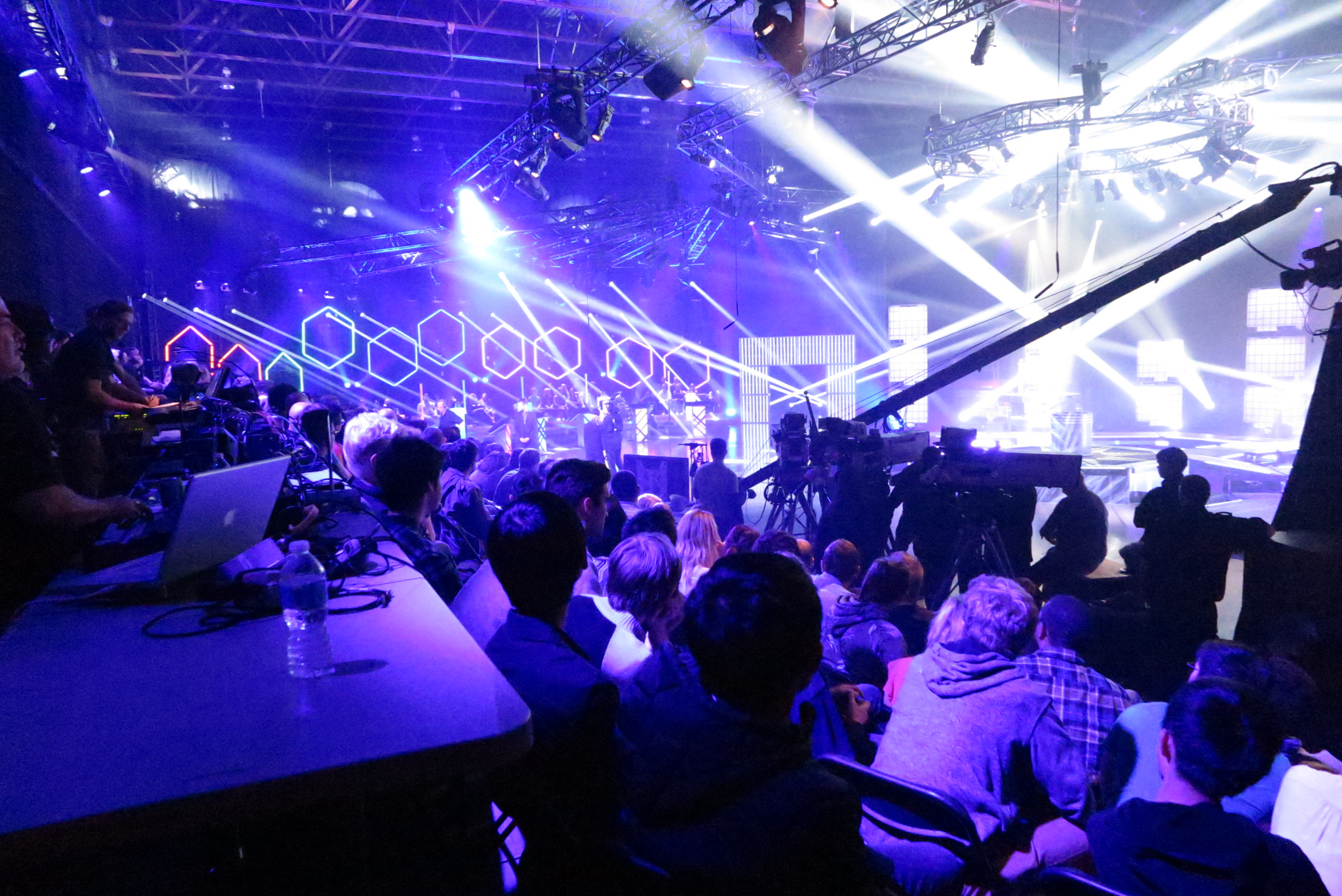Mind Control is an hour-long television special that Mindride helped create in October of 2014. It was the result of a partnership with some show developers associated with Mark Burnett to transform the technology behind The Ascent into a televised, multiplayer show. After a year and a half-long development and pitching cycle, it was assembled in California and filmed in Canada over a three-month period. I joined Mindride in August 2014 as their Interactive Systems Engineer to help bring this production to life. At our first offices in Burbank, I had many roles:
- I assembled and programmed some Adafruit NeoPixel-based wearable RGB LED pendants for the contestants' costumes.
- I co-created an overhauled version of the reception, parsing, and re-broadcasting hardware for interfacing with NeuroSky EEG headsets left over from The Ascent.
- I prototyped a Jitter-based software interface for addressing the show's "Mind Meters", first using Chauvet EPIX Strips and then using our custom-made NeoPixel-based diffused light tubes.
- I created a Lemur-based mobile UI for representing the state of each game as they were being run live on set, which was also fed to the editing truck for statistical/editing reference.
- I co-designed and implemented the Max/MSP-based physical computing network which took EEG headset messages from contestants and routed them over an OSC-based Ethernet ecosystem. Depending on the game, these messages would ultimately end up as DMX, ArtNet, raw voltage control, MIDI, or OSC. This network included AC blenders, chandeliers, televisions, spinning disc platforms, an automated winch, drawbridges, flamethrowers, CO2 blasters, RGB LEDs, etc.
- I prototyped some scrapped game mechanics on-set with MIRA.
- I implemented the mechanics of a television-based mini-game for one of the events in Processing.
In Mind Control, five teams of two players compete in a series of challenges which alternately challenge one player to surpass physical obstacles and the other player to harness and command their mental state, controlling the obstacles with their mind, and facilitating the completion of the physical player's task. The winning team are dubbed "Mind Control Masters" and are awarded a cash prize of $10,000.
Our central focus in developing this game show was in successfully re-mapping the Meditation metric that was utilized in controlling a winch in The Ascent to many different physical platforms. We worked carefully with our partners at Full Scale Effects to create an effective and exciting relationship between the mind controller and the physical competitor.
One of the major challenges of creating Mind Control was in adapting The Ascent's tech to work in a multiplayer, free-moving setting. To this end, we broke much of the traditional interface between headset and computer out into battery-powered custom hardware that broadcast wirelessly to a distributed network of receivers around the studio stage. This same framework as used for the wearable team pendants we created as part of the costuming of the contestants.
We also threw out many of the facets of the old production which made it more closely resemble a theatrical production. Namely, consoles (lighting and sound) were replaced with a lot of individual elements that had IPs and ports and a message payload that they reacted to. So, there was a lot of Ethernet running around everywhere. There were a lot of network switches clustered around each of the game events.
Ultimately, everything ran back to a few computers running Max patches and Lightjams sessions that we programmed. This made the overhead of creating new elements, addressing them, and programming them totally different compared to a traditional, more console-oriented approach. With a spare microcontroller connected to some more controls and sensors, we could add new mechanics into the show on-set.
Filming took place over one long day on set in Vancouver. Ultimately, the show aired in May of 2015 on City TV in Canada. We were pushed to our physical and psychological limits working on this show. It nearly broke us, but it was so much fun to work on. We made a TV show!
